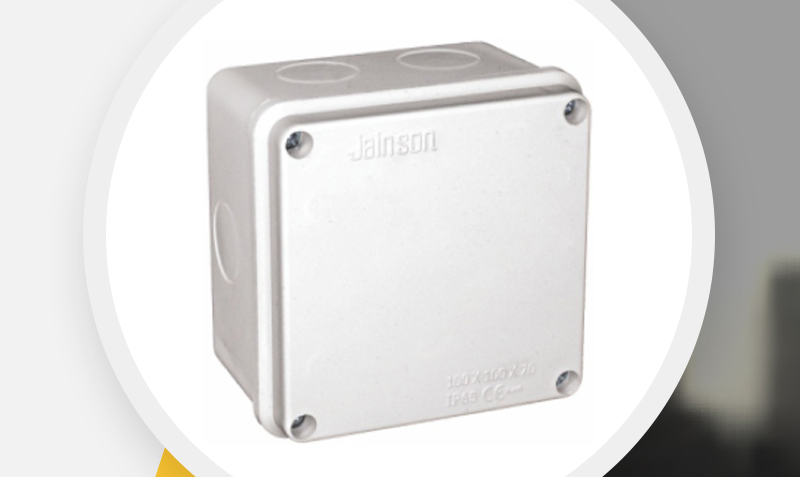
When it comes to outdoor electrical installations, the environment can be tough on equipment. Exposure to water, dust, and varying weather conditions can cause significant damage if the right weatherproof products are not used. To ensure that electrical enclosures and devices can withstand these harsh conditions, IP ratings (Ingress Protection ratings) are essential.
In this blog, we will break down what IP ratings mean, how they are determined, and how to choose the right weatherproof electrical products for your outdoor setup.
IP ratings (Ingress Protection ratings) are internationally recognized standards that measure how well an enclosure or device is protected against dust and moisture. The IP rating is denoted by two digits, where the first digit represents protection against solid objects (like dust), and the second digit represents protection against liquids (like water).
For example, a product with an IP65 rating is completely dust-tight (6) and can resist water jets from any direction (5).
When selecting weatherproof electrical products for outdoor use, it’s critical to understand the specific conditions they will be exposed to. Different IP ratings provide varying levels of protection, so choosing the right one is essential for ensuring durability and safety.
For Dusty Environments:
If your outdoor setup involves areas with a lot of dust or debris, you'll need products with higher protection against solid objects, such as IP6X-rated enclosures. These are dust-tight and can protect your electrical devices from clogging or damage caused by fine particles.
For Wet Conditions:
For installations exposed to rain, splashes, or heavy water jets, choosing electrical products with an IPX5 or higher rating is advisable. For example, IP65 weatherproof electrical enclosures are commonly used in such settings, as they are designed to withstand water jets, ensuring the safety of your system.
Underwater Use:
In cases where electrical equipment is submerged in water, you’ll need enclosures rated IPX7 or IPX8. Products with an IP68 rating offer the highest level of water protection, making them ideal for installations that may be submerged in water for long periods.
The selection of weatherproof electrical enclosures should be based on both the environmental conditions and the specific application. Here’s how to determine which IP rating is best suited for your needs:
Assess Environmental Conditions
Is the area prone to dust, water splashes, or heavy rainfall? Based on the environment, you can choose an IP rating that offers the right balance of protection.
Check for Compliance
Ensure that the products comply with local or international standards and regulations for outdoor electrical installations. High-quality weatherproof electrical enclosures should have certified IP ratings to guarantee safety.
Consider the Product’s Lifespan
Outdoor electrical installations often face varying temperatures, UV exposure, and corrosion. Choose enclosures made from durable materials like stainless steel or polycarbonate, which can resist wear and tear, along with providing strong IP-rated protection.
Using electrical products outdoors introduces safety risks if the right protection is not in place. A weatherproof electrical product with a high IP rating can safeguard against electrical faults caused by moisture or dust, thereby reducing the risk of short circuits, corrosion, or even fires.
Choosing the wrong rating can lead to water or dust getting into sensitive electrical components, leading to malfunctions or even dangerous situations.
When investing in outdoor electrical products, always prioritize those with the appropriate IP rating. Here are some key weatherproof products that are often required for outdoor use:
Understanding IP ratings is crucial for selecting the right weatherproof electrical products for your outdoor installations. Whether you're dealing with dust, rain, or full immersion in water, there's an IP-rated product that will keep your electrical systems safe, efficient, and long-lasting.
When in doubt, always aim for higher IP ratings to ensure maximum protection and durability. This will not only keep your systems running smoothly but also reduce risks and save you money in the long run.